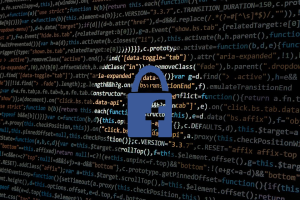Pro
April 26, 2018
Facebook has recently been rocked by a scandal revealing the leakage of the private data of up to 87 million users to a third party. Its stocks have dropped nearly $80 billion in value, and outraged users have rallied to Twitter with the hashtag #DeleteFacebook. Despite this uproar, however, Facebook should not be condemned for being the business it always was: if privacy is of such importance to the billions of internet citizens in this day and age, then changing the culture of ignorance and loose privacy laws in this country will be the true catalyst of change.
From a base standpoint, Facebook, first and foremost, is a business. Its goals and actions reflect that of generating a profit for the company; everything else is secondary. It is important to understand and accept this simple yet key idea. Users who feel betrayed after finding out that Facebook has been selling their information to third parties are naïve and ignorant. In exchange for being able to provide a free service, Facebook keeps track of users’ browsing habits, posts they click on and pages they “like,” feeding this information to third parties in order to effectively target ads. This is not a new nor a dishonest financial model; if someone has used the internet at all within the past decade, chances are that almost every service they have used for free employs this strategy.
Understanding the idea that users’ information are products to be given and taken is vital toward truly grasping the context of the situation. Facebook did not commit any illegal acts, nor did it practice any dishonest and unethical business practices. Using its services is completely voluntary, and all policies regarding sharing of users’ data are openly listed in its Terms and Conditions. It is not Facebook’s responsibility to make sure that users properly read and analyze the listed conditions. Included in these conditions is the consent to allowing researchers to have access to user data for academic purposes, how the information was first harvested.
Beyond these simple facts, it is important to properly dissect the situation at hand. Dr. Kogan, the developer of an app that mapped users’ personality traits in order to effectively target ads, pulled user data in a manner that was approved by Facebook. Kogan, however, began selling this information to Cambridge Analytica, a practice that is prohibited by Facebook. Facebook claims that after learning of the turnover of data in 2015, it removed Kogan’s app and received certification that the data had been destroyed. Evidently, it had not, which Facebook failed to ensure.
Facebook has now taken to simplifying and centralizing privacy settings, making it easier for their two billion users to control how much information they share. This is a step in the right direction, but if there is anything that can be learned from this, it is that negligence and corruption will supercede any such countermeasures in place. What are needed in order to deter similar instances of data leakage are rigorous and comprehensive privacy laws set by Congress.
In 2012, President Barack Obama proposed a privacy bill of rights, including ideas on giving people more control over their information, data collection transparency and limits on what businesses can do with the information they collect. Congress never approved it, but the European Union has integrated similar notions in its General Data Protection Regulation, going into effect on May 25. These European regulations will allow people to access their own data, transfer their information from one service to another and delete it altogether. The United States would do well to integrate similar laws that allow users far more control of their own information, as well as limiting internet businesses’ control over them. If laws had been in place that disallowed Facebook from giving away such extensive information in the first place, though keeping in mind that Facebook was well within its rights when it did, the leakage would never have expanded to the extent it did.
Undeniably, something went wrong in order for 87 million people to have their private information snatched away into the hands of an unknown entity. But that never happened inside Facebook’s conglomerate halls. It happened when we delved into a new era of communication and sharing without stopping to consider the implications of such technology. What has been done has been done; the solution to this problem lies not in deleting Facebook, but in pressuring our country’s leaders into creating well-defined privacy laws that will ensure something like this never happens again.



























































